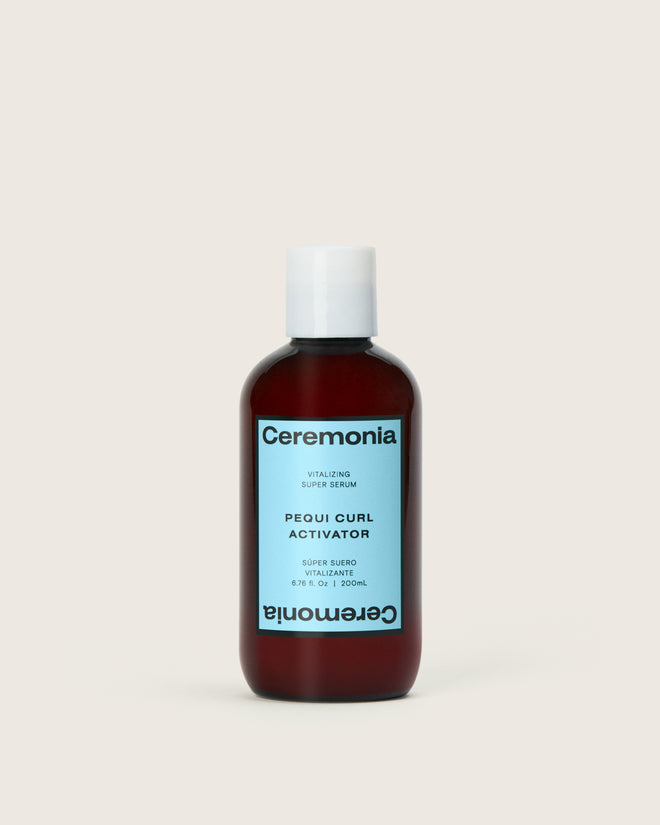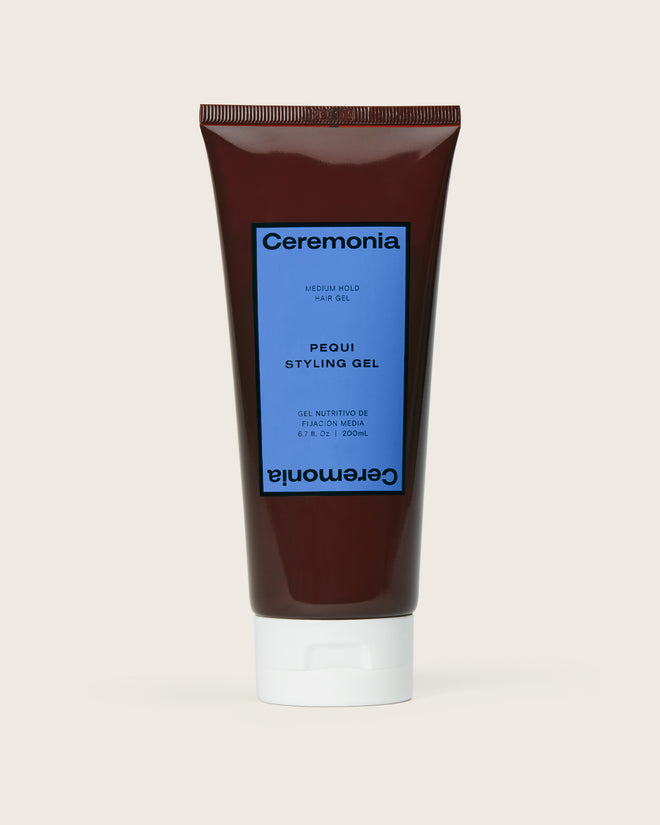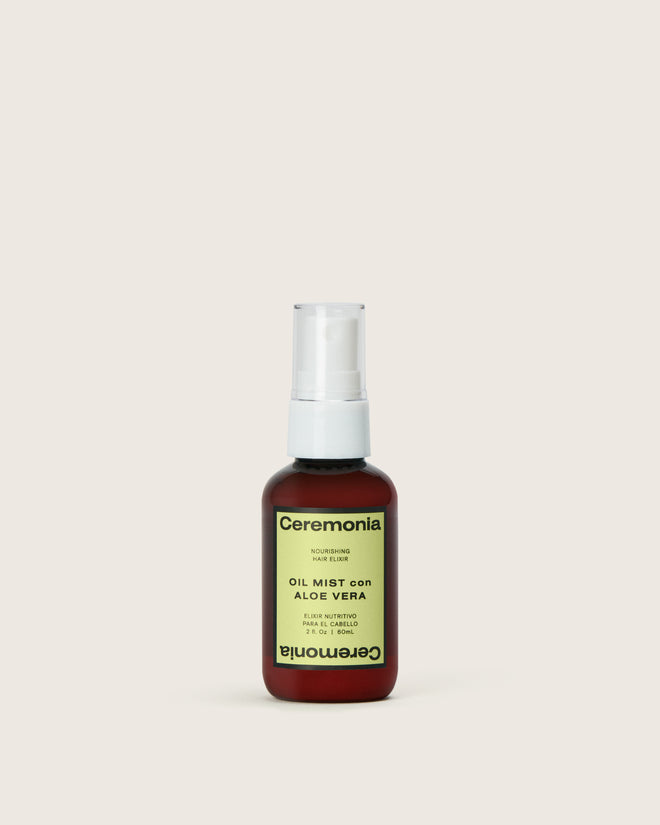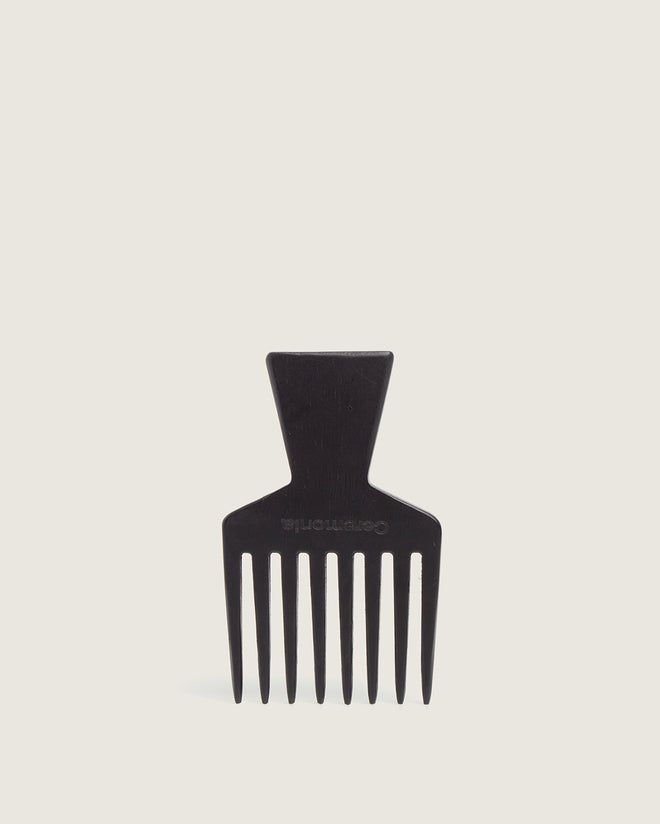Healthy hair starts with a healthy scalp. The scalp is essentially skin, and it has its own delicate skin barrier that needs care just like the face. Neglecting the scalp can lead to dryness, irritation, and an imbalance in its natural environment. This is where using a hair and scalp oil can make all the difference. In this article, we’ll explore the many scalp oil benefits, why the scalp’s skin barrier matters, and how nourishing oils can hydrate and protect your scalp.

Understanding the Scalp Skin Barrier
Just like facial skin, the scalp has a protective barrier that defends against moisture loss and outside irritants. This barrier is composed of tightly packed skin cells sealed with lipids, forming a shield against environmental aggressors and microbes. However, the scalp’s barrier isn’t identical to the one on your face. The scalp’s skin barrier is slightly weaker than the facial skin barrier, which makes it more susceptible to damage and irritation. This vulnerability can be compounded by common habits such as using harsh shampoos, overwashing, or excessive styling, which strip away natural oils. When the scalp barrier becomes compromised, you might experience dryness, flaking, or sensitivity. A weakened barrier also means the scalp can’t effectively retain moisture, leading to a dry scalp that feels tight or itchy. Supporting the scalp barrier is crucial because a strong barrier keeps the scalp hydrated, balanced, and better protected against factors such as dandruff-causing fungi or environmental pollutants.
Scalp barrier repair is possible with the proper care. Similar to how we use moisturizers and serums to repair the face’s barrier, the scalp benefits from gentle care and replenishing ingredients. Natural oils play a crucial role here. They help replenish lost lipids and retain moisture. We often focus on repairing hair damage, but maintaining the scalp’s “soil” is foundational for healthier hair growth. Think of a well-nourished scalp barrier as fertile ground for your hair follicles.
How Scalp Oils Nourish and Protect the Barrier
Applying oils to the scalp is a time-honored practice in many cultures, and science is catching up to explain why it works. A quality moisturizing scalp oil acts as an emollient, meaning it softens and moisturizes the outer layer of skin. Oils can fill in the gaps between dry skin cells on the scalp, reinforcing the barrier and preventing transepidermal water loss (TEWL). By sealing in hydration, oils keep the scalp from becoming dehydrated and flaky. Coconut oil is renowned for its ability to penetrate skin quickly and efficiently, which boosts the hydration of the scalp. It can also improve skin elasticity, fight itch, and even help ward off some microbes. These properties illustrate how a nourishing scalp oil not only moisturizes but also protects the scalp from irritation and infection.
Natural oils are rich in fatty acids that closely resemble the scalp’s own sebum (oil). Jojoba oil, for instance, has a composition similar to human sebum, making it an excellent scalp oil for hydration and balancing oil production. Argan oil is packed with vitamin E and linoleic acid, which help soothe inflammation and support skin repair. These oils fortify the lipid barrier of the scalp, essentially “patching up” any weak spots where moisture might escape or irritants could enter. By reinforcing the barrier, oils help maintain an optimal environment for the scalp’s microbiome. The community of healthy bacteria and fungi that live on your skin. A balanced microbiome and an intact barrier mean a lower chance of issues like dandruff, excess oiliness, or redness.
Combating Dryness and Flaking with Oils
One of the most common reasons people turn to scalp oils is to relieve dryness, flaking, and dandruff. A dry scalp often occurs when the skin barrier is unable to hold in enough moisture or when harsh products have stripped away the natural oils. The right oil can provide immediate relief by moisturizing the scalp and reducing those telltale white flakes. Many consider coconut oil to be the best hair oil for dry scalp issues because of its powerful hydrating and antifungal properties. As mentioned, coconut oil for the scalp may help repair the top layer of skin, making it a useful treatment for dandruff and dry skin. By restoring moisture and patching up the scalp barrier, oils like coconut create an environment less hospitable to the yeast that contributes to dandruff.
Other oils can help with dry scalp as well. Olive oil and almond oil, for example, have been used as home remedies to loosen and lift away stubborn flakes while nourishing the skin beneath. Castor oil is another heavy, occlusive oil that excels at sealing in moisture; just a few drops can soothe a dry scalp and give lasting hydration. For those who prefer lighter oils, argan or grapeseed oil can moisturize without a greasy feel, making them some of the best oils for dry scalp if you also have fine hair that gets weighed down easily. Regardless of which oil you choose, the immediate benefit is that dryness is reduced. Regularly oiling the scalp can help "train" the skin to be less dry by improving its barrier function, allowing your scalp to retain hydration more effectively on its own.
Soothing Irritation and Sensitive Scalps
If you have an itchy, sensitive, or inflamed scalp, you know how uncomfortable and distracting it can be. Whether the irritation comes from a skin condition or from product irritation, using a soothing oil for inflamed scalps can offer natural relief. Many botanical oils have anti-inflammatory and calming effects. For instance, tea tree oil is often used as an oil for an itchy scalp because it has antimicrobial properties that combat yeast and bacteria, while also reducing inflammation. Peppermint oil, when properly diluted, creates a cooling sensation that can help alleviate itchiness and improve circulation to the scalp.

Even our superstar coconut oil has a role here: it contains lauric acid, which converts to monolaurin – an agent that can help limit bacteria and calm irritation. It’s also a gentle moisturizer, which is great for a sensitive scalp that reacts to harsh ingredients. Another gentle option is jojoba oil; since it’s similar to the scalp’s natural oils, it’s less likely to cause a reaction and can help soothe and protect delicate skin. This immediate comfort is a sign that the oil is reducing irritation and helping the skin barrier recover.
For an oil for a sensitive scalp, look for ingredients like aloe vera or chamomile infused in the oil, as these add extra anti-inflammatory benefits. Products containing oat extract or calendula oil are also excellent for calming redness and tenderness on the scalp. Remember that if your scalp is severely inflamed or has open sores, it’s wise to consult a dermatologist. However, for everyday sensitivity or itch, a soothing oil treatment for hair can be a gentle and effective remedy.
Incorporating Oils into Your Scalp Care Routine
Using scalp oils is simple, but a few tips can help you get the most out of them without any drawbacks. Choose your approach: some prefer to do a pre-shampoo oil treatment, while others like to leave a light oil in overnight as a mask. To integrate oil into your scalp care routine, consider doing an oil treatment once or twice a week to start. Here’s a basic routine you can follow:
-
Prep: Start with dry hair (or slightly damp after a wash). Section your hair so that your scalp is exposed in rows. This makes it easier to apply the oil evenly.
-
Apply: Take a few drops of your chosen hair and scalp oil and apply them directly to the scalp in each section. You can use a dropper if available, or just your fingertips. A little goes a long way – you want a light coating, not a dripping scalp.
-
Massage: Using your fingers, gently massage the oil into your scalp with small circular motions. This boosts circulation and helps the oil penetrate. Take a few minutes to massage; it can be very relaxing and ensures every area gets attention.
-
Wait: Allow the oil to sit and do its magic. For a pre-wash treatment, leaving it on for about 20-30 minutes is usually enough. If you’re doing an overnight treatment, you can cover your pillow with a towel and leave the oil on until morning.
-
Wash (if needed): If you applied a lot of oil or have naturally oily hair, shampoo and rinse thoroughly afterward to avoid any residue. You might need to shampoo twice to remove all traces of heavier oils like castor or coconut. If you used a very light oil or just a few drops, you might skip washing and simply style as usual.
How often should you oil your scalp? Use scalp oil treatments about one to three times per week, adjusting based on your scalp’s needs. If you have dehydrated skin or hair, you might oil slightly more often; if you have an oily scalp, you might do it less. U
Choosing the Best Scalp Oil for You
With so many options available, how do you choose the best scalp oil for a dry scalp or any other concern? The key is to match the oil (or oil blend) to your specific needs. Consider your primary scalp issue or goal: do you need deep hydration to address dryness? Relief from itch or bumps? Help with excessive oil or dandruff control? Once you identify that, look at the ingredients.
It’s also worth considering products that combine multiple oils and actives to cover all bases. For example, a popular nourishing scalp oil product from Ceremonia blends passion fruit oil (rich in antioxidants), castor oil (for growth support), and aloe vera (for soothing and balance). This multi-ingredient approach allows the product to hydrate, clarify, and calm simultaneously. In fact, one beauty editor praised the Ceremonia scalp oil for being lightweight and noted that it “instantly calms my scalp,” describing it as a spa-like experience in a bottle. This highlights what you should aim for: an oil treatment that is pleasant to use and leaves your scalp feeling better right away.
As you shop scalp oil online or in stores, keep an eye out for buzzwords like “scalp balancing,” “hydrating,” or “repairing” in the product description. A barrier-repairing scalp oil typically contains ceramides or essential fatty acids; these are excellent if your scalp has been very compromised. Dermatologists often recommend ingredients like ceramides, niacinamide, and panthenol for skin barrier health. If you find a scalp oil with these plus natural oils, you’ve got a winner. Also, opt for products that are free of harsh sulfates, parabens, and excessive fragrance, especially if you have a sensitive scalp. The simpler and more natural the formula, the kinder it will be to your skin. Find a texture and scent you enjoy: some oils are herbal and invigorating, others are neutral and barely noticeable. Whether it’s a luxurious weekly ritual or a quick fix on problem spots, having a go-to scalp oil on hand is a smart strategy for ongoing scalp maintenance. With the right choice, your scalp oil products will not only tackle immediate issues like dryness or itch but also fortify your scalp’s barrier for the long term.

In the quest for a healthier scalp, consistency is key. Apply your chosen barrier-repairing scalp oil or soothing treatment regularly, and be patient as the improvements unfold. Over a few weeks, you’ll likely notice less dryness, reduced irritation, and perhaps even stronger hair growth as your scalp environment improves. Whether you visit a salon, DIY at home, or shop for the best oil for dry scalp online, focus on quality ingredients and a formula suited to your needs. Your scalp will thank you with improved comfort and vitality. Tending to your scalp’s skin barrier with nourishing oils is an easy, natural way to ensure that the foundation of your hair is healthy and resilient. After all, great hair truly does begin at the root.
Sources
-
Harper’s Bazaar India – Tatiana Dias, “Are we focusing on scalp skin barrier enough?” (Mar 8, 2025) harpersbazaar.inharpersbazaar.in
-
National Eczema Association – Emily Delzell & Clare Maloney, “Coconut Oil and Eczema” (Oct 7, 2022; updated Jun 11, 2024) nationaleczema.org
-
Verywell Health – Cathy Wong, “Coconut Oil Is Good for Your Hair” (Apr 11, 2025) verywellhealth.com
-
Byrdie – “The 8 Best Scalp Oils of 2025, According to Editors” byrdie.combyrdie.com
-
Business Insider – Rebecca Strong, “Hair Growth Oils: 5 to Try and How to Use Them” (Apr 2024) businessinsider.com




